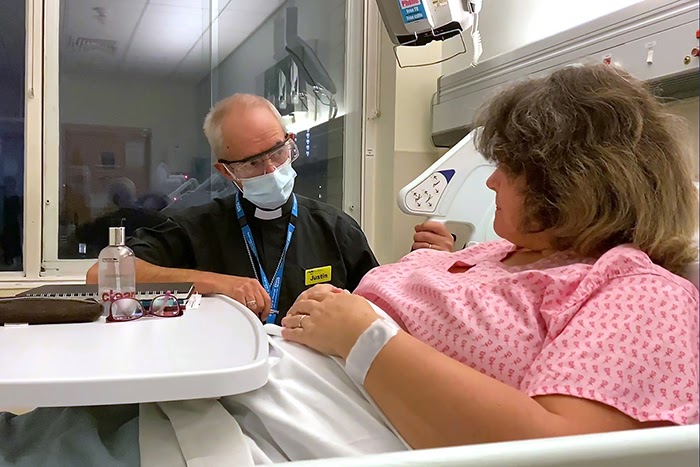Hospital Chaplaincy: Addressing Spiritual Needs of Patients, Families, and Staff

When you enter the field of hospital chaplaincy, you play a role that can improve the quality of care provided to patients and their families in meaningful ways. While hospitals are places of healing, at the same time they can be places where support and spiritual guidance are in great demand. That’s where hospital chaplains come in.
Patients, their families, and even healthcare professionals employed at a hospital often turn to chaplains for perspective and comfort. For those facing life-changing diagnoses, major surgeries, or death, a hospital chaplain can offer care and compassion that can be just as important as—or, in critical moments, even more important than—the clinical care the hospital provides.
What a Hospital Chaplain Does
The role of a hospital chaplain is as multifaceted as it is important. Chaplains are spiritual leaders, counselors, advocates for patients and their families, and the person who works to provide compassion, perspective, and comfort in times of uncertainty or grief. A chaplain may be at a patient’s bedside before and after surgery, with the family as they endure a loved one’s health crisis, and accessible to staff struggling to deal with the emotional grind of a work environment defined by sickness and death.
Being adaptable to the needs and beliefs of those they help, hospital chaplains must meet people where they are, both emotionally and spiritually, regardless of their faith or denomination. Their role also includes conducting or assisting in important rituals, such as delivering last rites to the dying. And chaplains must be on call and available when needed, including nights and holidays. Chaplains are relied upon for solace and strength by those they serve.
What’s Required to be a Successful Hospital Chaplain
Hospital chaplaincy is an institutional application of care, and those who are successful in these challenging yet fulfilling roles will possess certain traits. They are intellectually curious and confident in their theological knowledge. From a practical standpoint, they also are exceptional listeners, possess great capacity for empathy, are adept at counseling, and can assist patients and their loved ones in their interactions with healthcare staff.
As the first-line spiritual leader in a healthcare setting, a hospital chaplain also serves as the liaison between patients and families, and community places of worship that may be called on to provide faith or denomination-specific care, when needed.
Because being a chaplain isn’t for everybody, those exploring the field can benefit by gaining firsthand experience in a healthcare environment.
Hartford Seminary’s MA in Chaplaincy (MAC) program supplements its academic requirements with a field education component that provides experience in a healthcare setting. This field education work allows students to develop a sense for what a career as a chaplain will entail, and to enter the field with invaluable firsthand knowledge of the role.
Read more about the Hartford Seminary’s MA in Chaplaincy (MAC) program.
Tags: hospital chaplaincy
